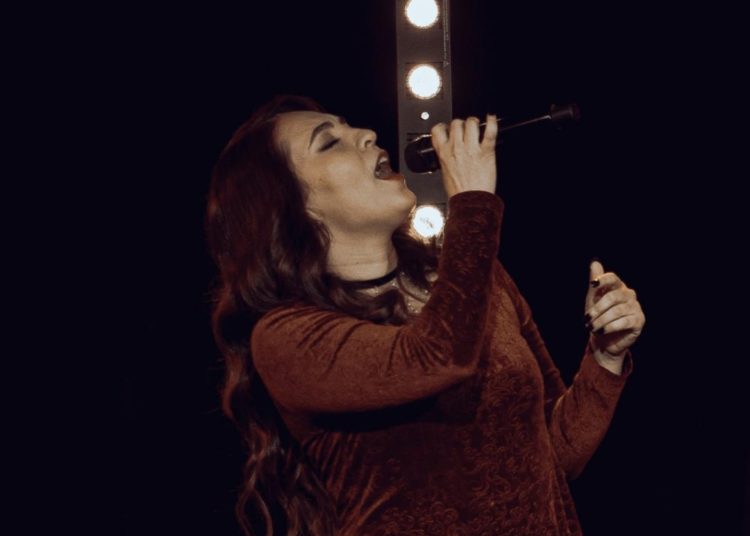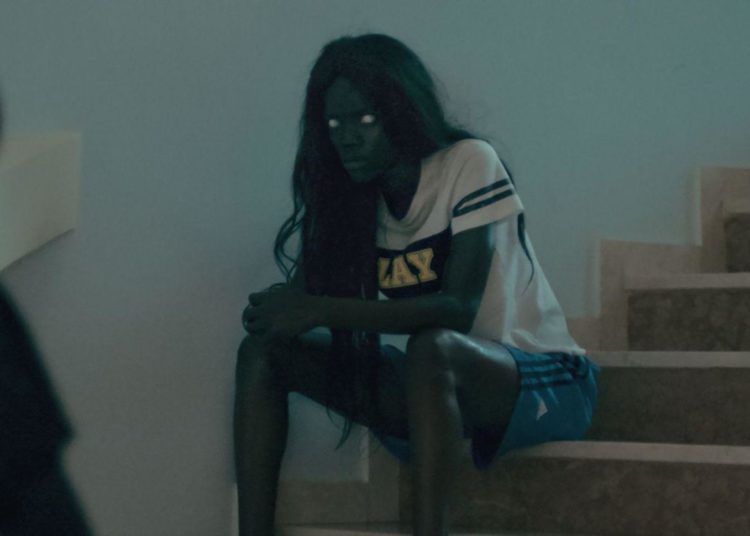This post is also available in: Français (French) VO
The show is sold out every night. And every night, there are people who come back to see it for a second time, with friends. Because it's fun, and it makes people laugh, but above all because the play is a powerful reminder of what it means to be a woman today. It’s also thought-provoking, an opportunity for sharing that continues long after the curtain falls—in a manner of speaking, since there actually is no curtain: the fourth wall* is broken several times throughout the evening.
Silvia Gallerani, director, co-writer, and actress, is not alone on stage as she was in Cristian Ceresoli's famous monologue La merda (The Shit), which won the Fringe First Award for Writing Excellence (2012), the theater’s version of the Oscars, and many other prizes later on.
In this show, as in La merda, she is mostly naked—rather, they are all naked, because Gallerani is accompanied on stage by the seven other co-authors and actresses: Giulia Aleandri, Elvira Berarducci, Smeralda Capizzi, Benedetta Cassio, Livia De Luca, Chantal Gori, and Giulia Pietrozzini.
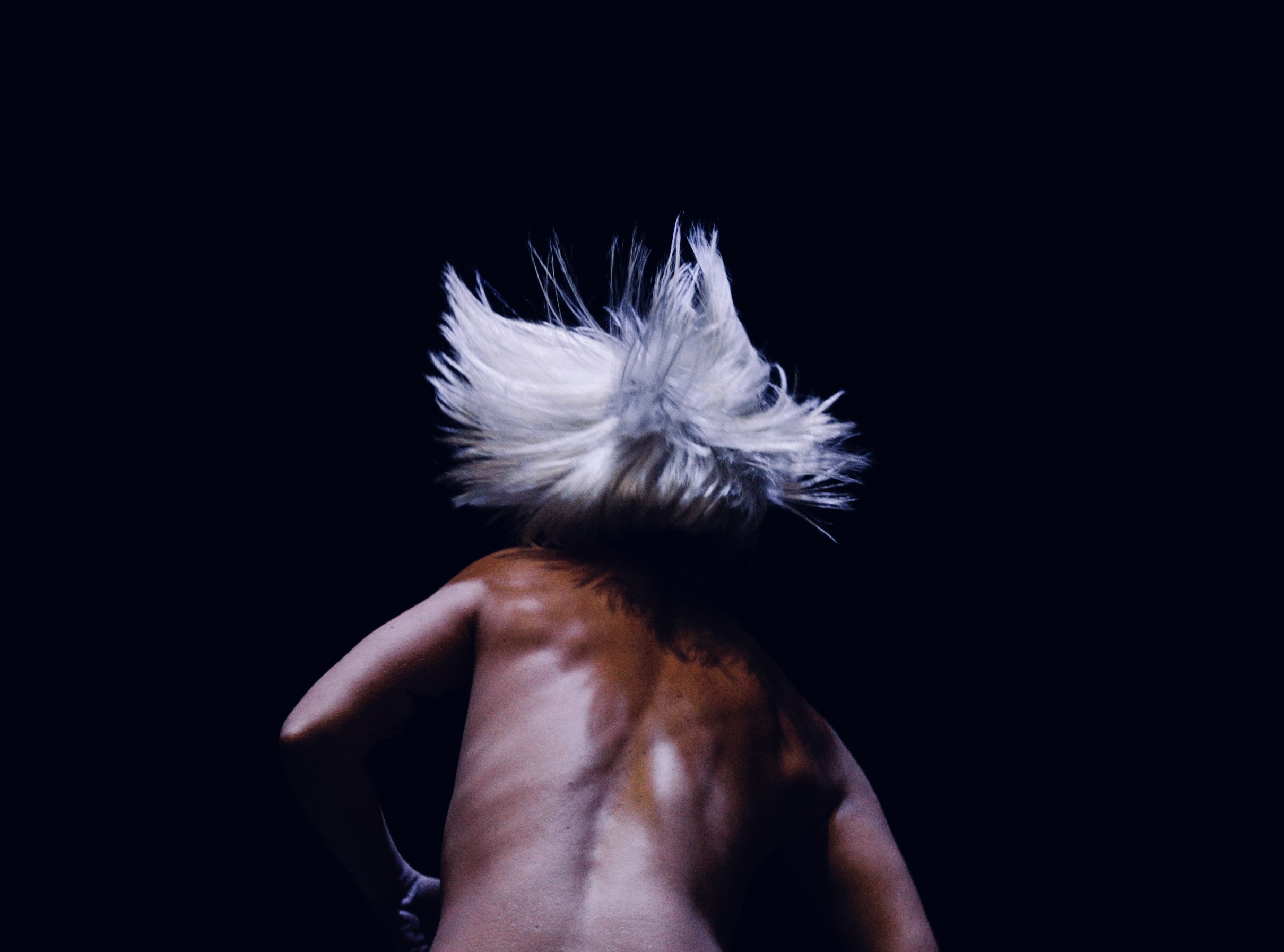
The very premise of the show, announced in the brochure placed on the seats, is clear: “Only women's bodies. This is the experience... Those who feel like it will respond. It's not for everyone. We welcome those who are interested in experiencing what it means to be looking in a mirror.”
This more or less explicit reference is to feminist separatism and especially to the self-awareness and free-speech groups that shaped seventies feminism, when there emerged a space for awareness of sexual difference and when the desire to no longer submit to a universal “all” built on the masculine was expressed for the first time.
“It's not about excluding men, but rather of freeing ourselves from a predatory, judgmental, demeaning gaze ... the result of a society founded on male supremacy, a society that renders anyone who isn't a man into someone less-than: less authoritative, less important, less interesting,” the director explains.
“There are words. There are a lot of words. Words that cover and protect bodies. And then there are the bodies. The ones we look at in the mirror when we wake up. Before we disguise them to walk among others.”

In fact, Gallerani immediately creates a mirror between the audience rushing to their seats in a blaze of chatter and the hubbub of the actresses clad in all-white panties, bras, and shiny satin dressing gowns, chatting, gesticulating, and laughing on stage. The actresses then make incursions into the audience, asking questions, inviting the public to take a paper from a basket, borrowing clothes, shoes, and a hat. As such, the naked and clothed bodies rub shoulders. The show can begin!
Between frenzied and ironic dances, sarcastic jokes that dismantle stereotypes about women – they “talk too much,” “are never ready,” “take a long time to get ready” – and in the different monologues, the body is analyzed, or rather “taken apart,” without mercy, “as we do every morning in front of the mirror.”
So here they are, boldly showing “what I don't like about my body” – stomach, ears, ankles, knees, profile – and then performing the tortures that women are willing to undergo to fit the unattainable models that fill the pages of magazines. Here they are again, mocking the “poses we take” to camouflage supposed defects or, worse still, to mask and belittle feminine talents and skills.
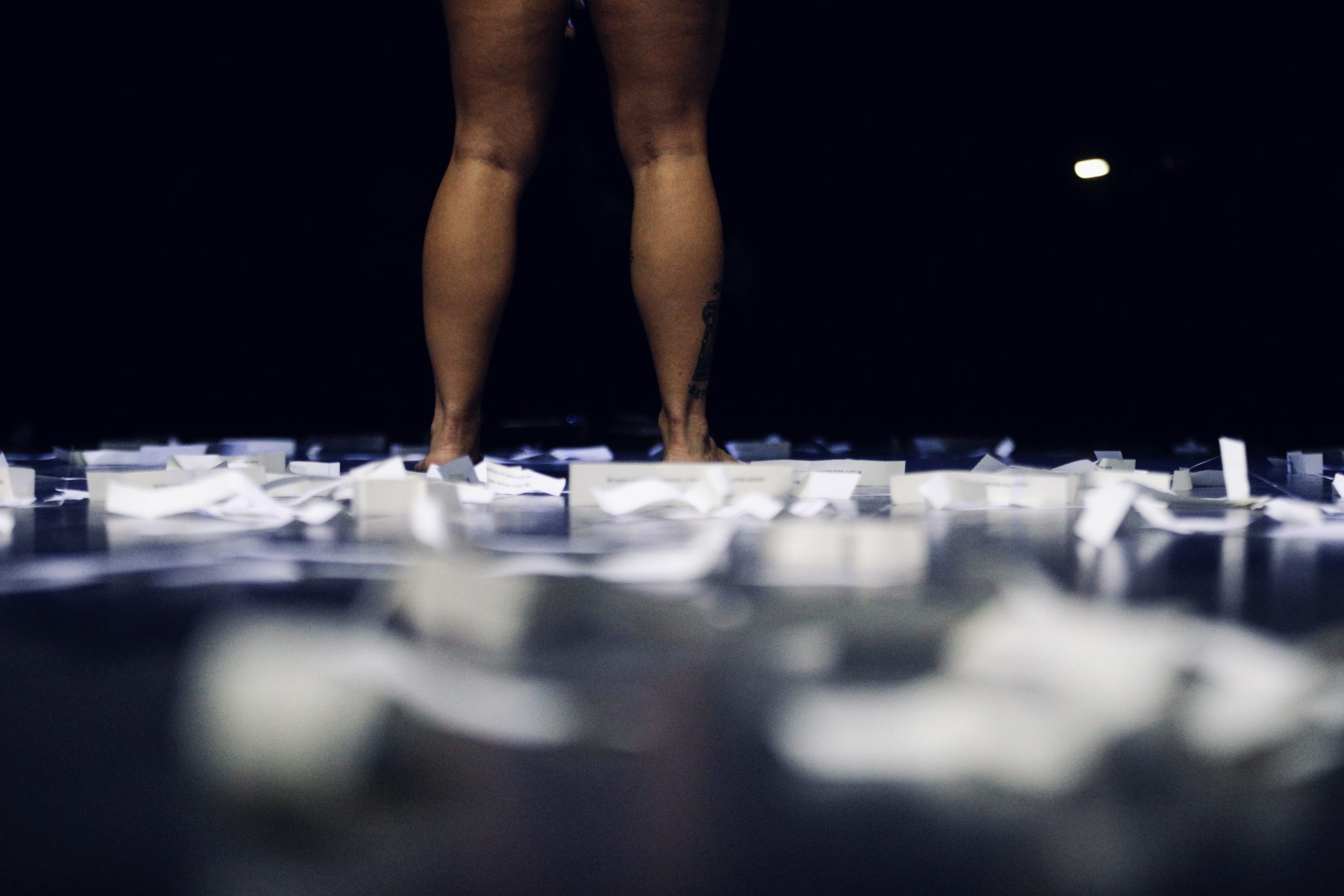
They then move on to the “things that invade me,” picking up the scraps of paper strewn across the floor and reading them in rapid succession: “I feel invaded ... by unsolicited advice, by my need to always look dignified, by the books on my bedside table, by white hair…”
We'll discover later, when we're invited to write down what we feel invaded by (in my case by people shouting at me to “tie up your dog”), that the phrases were collected with the help of the audience since the very first performances. It’s a list that changes on stage every night, one that keeps getting longer.
Next, it's the turn of “bad conscience,” and here again the audience is invited not only to raise their hands like “when we were playing with trading cards: that one I have, that one I don’t,” but also to find other reasons why we women feel guilty: “when I go out without my children and husband, when I work, when I get angry, when I raise my voice, when I'm too much ... or not enough ...”
With a nod to trashy television, the “talk show” then begins, tackling “crucial questions” that we've all had to face at some point when talking about the body: to shave, or not? to have plastic surgery, or not? to have children, or not?
Between appearing and being, between appearing as we are and trying to appear as we would like to be, between an internalized male gaze and the emergence of our own points of view on ourselves and the world, the show culminates in laughter, tears, and a liberating dance that draws a large part of the audience onto the stage, who are then invited to sit down and chat with the company.
Silvia Gallerani asks, “How does it feel to be just a woman?”
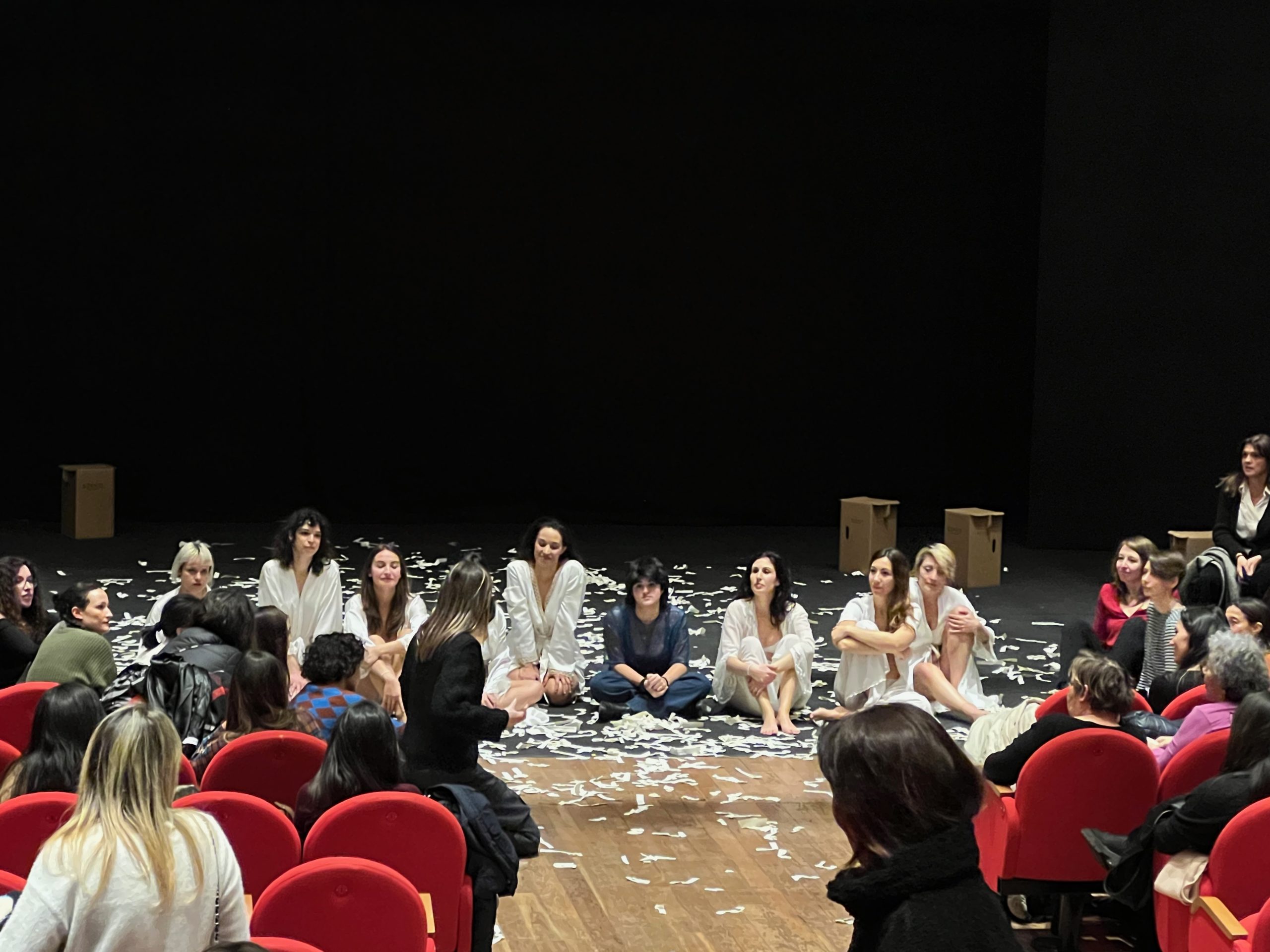
“Liberating.” “Curious.” “Unusual.” “It used to be like that in every neighborhood,” recalls with a touch of nostalgia a woman whose white hair confirms her experience of a grassroots feminism. But also: “I was uncomfortable, because it was the first time, and I felt how difficult it is for women, outside, in the real world, to be as free as we otherwise can on stage.”
“At the beginning, we could see the flaws in your bodies, but as time went by you all became more beautiful and, in the end, you were beautiful because every detail of your bodies contributed to the identity, the personality of each of you,” another spectator notes.
Many questions can be asked about how the eight protagonists were able to feel at ease completely naked, in front of an audience, even if it was one made up exclusively of women. It is here that the full power of contemporary experimental theater is revealed, a form of theater that mixes laboratory and improvisation, where over the course of rehearsals, by learning to perform completely naked, a female identity is stitched together, finally revealed. And free.



























